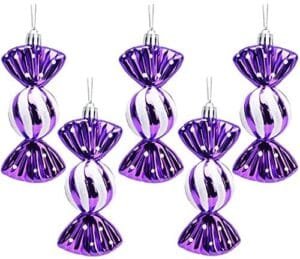The Psychology of Inspiration: Its Impact on Our Everyday Lives
Understanding inspiration is essential in recognising its profound impact on our motivations, aspirations & psychological well-being... #inspirationispurple
What is Inspiration?
Inspiration is a complex psychological phenomenon that has captivated scholars, artists, and thinkers for centuries. Inspiration can be understood as a process that triggers a burst of creativity, motivation, or an emotional response, propelling individuals to pursue innovative ideas, challenges, or artistic expressions. The origins of inspiration can vary among individuals; it could stem from natural beauty, interpersonal connections, individual experiences, or even external stimuli such as literature and music.
In a psychological sense, inspiration encompasses both cognitive and emotional dimensions. Cognitively, it involves the sudden emergence of insights or innovative thoughts that encourage problem-solving or personal growth. Emotionally, inspiration can evoke feelings of elation, awe, or a sense of urgency to act, often leading to a period of heightened productivity or creative output.
Inspiration can manifest in several forms, including motivational inspiration, artistic inspiration, and social inspiration. Motivational inspiration pertains to the drive to achieve personal ambitions and goals, while artistic inspiration typically refers to the influence that propels artists to create or innovate. Social inspiration, on the other hand, is related to moral or ethical values ignited by role models, societal events, or movements aimed at making a difference in the world.
It is evident that inspiration serves as a powerful catalyst in daily life. It not only enriches the human experience but also plays a significant role in pushing individuals toward self-discovery, creativity, and transformative growth. Understanding the multifaceted nature of inspiration is essential in recognising its profound impact on our motivations, aspirations, and overall psychological well-being.
The Psychological Mechanisms Behind Inspiration
Central to understanding the mechanisms behind inspiration are the concepts of creativity and emotional triggers, which work in tandem to evoke inspirational moments.
Creativity, often described as the ability to generate novel ideas or solutions, is frequently ignited by specific stimuli or situations. This creative surge can lead to significant insights or innovations, shaping both personal and professional realms.
Emotional triggers are also vital in cultivating inspiration. Events that elicit strong emotions, whether they invoke joy, surprise, or even sadness, can function as catalysts for inspiring moments. For instance, experiencing sublime artworks or engaging in deep conversations can profoundly impact one’s emotional state, leading to bursts of creativity and motivation.
Understanding these triggers and their psychological implications provides valuable insight into how individuals can harness inspiration in their daily lives.
The interplay between creativity, motivation, and emotional triggers forms the core of the psychological mechanisms behind inspiration. By recognising these elements, individuals can cultivate environments and experiences that boost their creative capacities, leading to enriched personal and professional outcomes.
The mechanisms behind inspiration are the concepts of creativity and emotional triggers, which work in tandem to evoke inspirational moments... #inspirationispurple
By embracing inspiration individuals can cultivate an enriched sense of creativity & motivation in their daily lives... #inspirationispurple
Sources of Inspiration in Everyday Life
Inspiration can manifest from a multitude of sources in our everyday lives1, often in the most unexpected ways.
One of the most profound sources is Nature, with its ever-changing landscapes, colours, and sounds. Spending time outdoors, whether it be through hiking, gardening, or simply taking a walk in the park, can provide a refreshing perspective and stir creativity.
Art is another significant fountain of inspiration. Every brushstroke and sculpture has the potential to convey deep emotions, ideas, and stories. Visiting museums, galleries, or even local art shows can spark new thoughts and feelings, pushing one’s creative boundaries. Observing different artistic expressions, from classical to contemporary, can inspire individuals to explore their own artistic inclinations or appreciate beauty in diverse forms.
Music also serves as a catalyst for inspiration. The powerful effect of melodies and rhythms can evoke memories, encourage introspection, and ignite passion. Regardless of whether one listens to classical compositions or contemporary genres, music can enhance our emotional states, driving individuals toward more inspired and motivated actions.
People themselves can be significant motivators. Engaging with individuals who exhibit passion, resilience, and creativity can fuel one’s own desire to pursue personal goals. Whether through mentorship, casual conversations, or community involvement, learning from others can impart valuable insights and new perspectives.
Experiences, be they joyous or challenging, also shape our psyche and influence our outlook on life. Reflecting on these moments can provide profound insights and stimulate the imagination.
By immersing yourself in these diverse sources of inspiration individuals can cultivate an enriched sense of creativity and motivation in their daily lives.
The Impact of Inspiration on Well-Being
Inspiration plays a pivotal role in enhancing an individual’s mental health and overall well-being. As we’re sure you appreciate, feelings of inspiration can significantly boost happiness levels and generate a sense of personal fulfilment. When individuals experience inspiration, they are often motivated to pursue their goals and creative endeavours with renewed vigour. This surge in motivation can lead to an increase in productivity, contributing to a strong sense of accomplishment.
Inspired individuals are also more likely to experience positive emotions, such as joy and satisfaction, which can lead to improvements in mental health. Inspiration often acts as a catalyst, promoting feelings of vitality and energy. Individuals who feel inspired are more likely to engage in activities that enrich their lives, facilitating personal growth and development. This correlation is substantial, as inspiration can transform your outlook on life, shifting focus from obstacles to opportunities.
Inspiration can strengthen our resilience and the ability to bounce back from hardships. Inspired individuals often demonstrate greater levels of perseverance, enabling them to overcome challenges while maintaining a positive mindset. The inspirational experience can function as a buffer against negative emotions, providing individuals with the tools to cope with stress and anxiety. Consequently, inspiration contributes to a more robust mental framework, promoting a higher quality of life and enhanced well-being.
Additionally, the psychological benefits of inspiration extend beyond individual experiences. Inspired individuals often encourage positive relationships within their communities, as they are more inclined to share their insights and uplift others. This ripple effect underscores the profound impact inspiration can have, not only on personal well-being but also on social integration. The transformative power of feeling inspired therefore serves as a vital component in the pursuit of positive mental health and overall life satisfaction.
Feeling inspired serves as a vital component in the pursuit of positive mental health & overall life satisfaction...#inspirationispurple
Colour plays a pivotal role in shaping our emotions & behaviours often acting as a catalyst for inspiration... #inspirationispurple
The Role of Colour in Inspiration
Colour (have we mentioned purple yet?) also plays a pivotal role in shaping our emotions and behaviours, often acting as a catalyst for inspiration. Different colours can elicit distinct emotional responses. For instance, the colour blue is frequently associated with calmness and tranquillity, while red often invokes feelings of excitement and urgency. These emotional reactions are not merely personal; they are influenced by cultural contexts where certain colours carry specific meanings and perception can vary significantly across societies, further complicating the universal language of colour.
The connection between colour and inspiration becomes particularly evident in creative environments. Artists and designers often use colour theory to provoke the desired emotional response in their audiences. Bright colours are known to stimulate creativity and enthusiasm, encouraging innovative thinking. Muted tones may encourage introspection, allowing for deeper contemplation and reflection. Understanding these associations can empower individuals to curate their surroundings in a manner that enhances their creativity and inspiration.
Colour in marketing tactics also underscores its psychological impact. Brands leverage specific colours for product packaging and advertising to evoke feelings that align with their identity and values. This is evident when companies choose green to promote eco-friendliness or purple to denote luxury and sophistication. Such strategies reveal the profound effects that colour has on consumer behaviour, underscoring its ability to inspire both buying decisions and emotional resonance.
As we navigate our daily lives, it is crucial to acknowledge the subtle yet significant influence of colour on our mood and motivation. By cultivating an awareness of these effects, individuals can enhance their surroundings and tap into the power of inspiration that colours can provide.
How to Cultivate Inspiration in Daily Life
Cultivating inspiration in daily life requires intentional effort and an adaptive mindset. By crafting an environment rich in activities and relationships that inspire, individuals may find themselves more consistently tapping into their creative potential.
Primarily, it is essential to establish a routine that incorporates activities aimed at sparking creativity. This may include setting aside time for reading, writing, or engaging in artistic endeavours. Alternatively, consider surrounding yourself with inspired individuals—friends, mentors, or colleagues who nurture creativity can be a powerful source of motivation.
Another effective approach is to change environment periodically. A walk in nature, a visit to a new place, or even rearranging your workspace can offer new perspectives and stimulate ideas. In everyday environments, such as homes, incorporating colour through accessories, furniture, or artwork can uplift the mood and inspire creativity. Using natural light to enhance the appearance of colours can create a warm and inviting atmosphere, making it easier for individuals to feel motivated.
Additionally, personalising spaces with colours that reflect individual preferences can lead to increased satisfaction and inspiration. By carefully choosing colour palettes and strategically placing them in our surroundings, we can significantly impact our mood, creativity, and overall engagement in daily activities.
Mindfulness practices, such as meditation or deep breathing, can also clear mental clutter, allowing individuals to access deeper levels of inspiration.
Finally, adopting a growth mindset plays a crucial role in cultivating inspiration. Embracing challenges and viewing setbacks as opportunities for learning helps strengthen resilience. When individuals approach obstacles with curiosity and openness, they are more likely to find inspiration within those experiences.
Cultivating inspiration in daily life requires intentional effort and an adaptive mindset... #inspirationispurple
Inspiration is essential for personal growth & creativity, yet numerous barriers can hinder individuals from experiencing it fully... #inspirationispurple
Overcoming Barriers to Inspiration
Inspiration is essential for personal growth and creativity, yet numerous barriers can hinder individuals from experiencing it fully. By addressing these barriers through deliberate and supportive action, individuals can pave the way for inspiration to flourish in their everyday lives.
The fear of failure is one of the most significant psychological barriers to inspiration. This fear can lead individuals to avoid taking risks or pursuing latest ideas, as the possibility of rejection or criticism looms large. It is essential to recognise that failure is a natural part of the creative process. Viewing failure not as a setback but as a learning opportunity can help mitigate this fear.
Another common obstacle is negative thinking. Reframing negative thoughts is another powerful strategy. By consciously replacing limiting beliefs with positive affirmations, individuals can create a more supportive internal environment that assists inspiration.
Stress is a significant barrier which can cloud judgment and diminish emotional resilience. In our fast-paced lives, high-stress levels can lead to an overwhelming sense of fatigue, reducing the energy available for seeking inspiration. Techniques such as mindfulness, meditation, and relaxation exercises can effectively alleviate stress, allowing individuals to create mental space for inspiration to flourish. By prioritising self-care and stress management, people are more equipped to perceive and act upon inspirational cues in their environment.
Societal pressure also plays a crucial role in inhibiting inspiration. Individuals may feel constrained by societal norms or expectations, which can stifle creativity and innovative ideas. It is important to understand that these pressures are often not reflective of personal capability but rather external standards that can be challenged. Engaging in creative circles or communities that encourage exploration beyond societal norms can provide the necessary support to venture into new territories.
Inspiration vs. Motivation: Understanding the Difference
It is crucial to detail the nuanced differences between inspiration and motivation, two concepts whose interplay significantly influences daily life. While they may appear synonymous, each embodies distinct characteristics and functions that impact our psychological states.
Inspiration can be defined as a powerful, often spontaneous feeling that encourages creativity and innovation. It typically arises from external stimuli—such as art, nature, or the influence of others—and provides a mental uplift that triggers a surge of ideas and aspirations.
Motivation refers to the internal drive that propels individuals to act towards achieving specific goals. This drive can stem from various sources, including personal ambitions, rewards, or the desire for success and it plays a critical role in the experience of inspiration. It can be categorised into two broad types:
- Intrinsic motivation refers to engaging in an activity for its inherent satisfaction and personal fulfilment – Individuals tend to experience more profound moments of inspiration, as they are more personally invested in their pursuits.
- Extrinsic motivation involves performing tasks driven by external rewards or recognition – Factors, such as social approval or financial gain, may stimulate inspiration in certain contexts, albeit with less enduring impact.
Understanding the interplay between inspiration and motivation allows individuals to cultivate these states effectively and it is beneficial to recognise moments of inspiration, as they can serve as a catalyst for motivated behaviour. It is possible to develop a holistic approach to your personal and professional growth by channelling both inspiration and motivation in fulfilling your aspirations.
Inspiration & motivation, two concepts whose interplay significantly influences daily life... #inspirationispurple
Individuals who incorporate moments of inspiration into their daily routines generally enjoy higher levels of happiness and fulfilment... #inspirationispurple
Embracing Inspiration in Everyday Life
Inspiration manifests in countless forms, whether it is derived from art, nature, relationships, or personal achievements. Recognising the sources of inspiration in our lives is critical, as these influences often motivate us to pursue our aspirations and overcome challenges.
It is not merely a fleeting moment but a continual process that requires nurturing. Engaging with inspiring stimuli, including the colours that surround us, can elevate our mood by igniting our creative instincts, inciting feelings of energy and excitement, or promoting a sense of tranquillity and reflection. By intentionally integrating colours that inspire our best selves into our surroundings, we can create an environment ripe for creativity and innovation.
The impact of inspiration is not limited to the creative realms. It also plays a vital role in mental health and overall life satisfaction. Individuals who incorporate moments of inspiration into their daily routines generally enjoy higher levels of happiness and fulfilment. Simple practices such as mindful observation or engaging in hobbies can serve as gateways to moments of inspiration that rejuvenate the spirit.
It is important to emphasise the necessity of embracing inspiration in our everyday lives. Actively identifying and nurturing our unique sources of inspiration will lead to increased resilience, greater satisfaction, and a more meaningful pursuit of our end goal(s).
We encourage our visitors to embark on their own journey to discover what inspires them and take deliberate steps to integrate those elements into their daily routines. By doing so, we can all cultivate a more inspired, creative, and fulfilling life.

AI Generated Content includes
First Draft Text via HOSTINGER AI WRITER
Post Images via CANVA Magic Media™

Edited, Styled & Published by
Phil
Editor's Notes:
1 The inspiration behind this website is initially based on being a lifelong fan of Prince and being influenced by his music and his use of the colour purple… I first saw him live on his ‘Lovesexy’ tour in London in 1988 and it remains one of my most treasured memories… & no, the date is not a typo!!!
Phil







